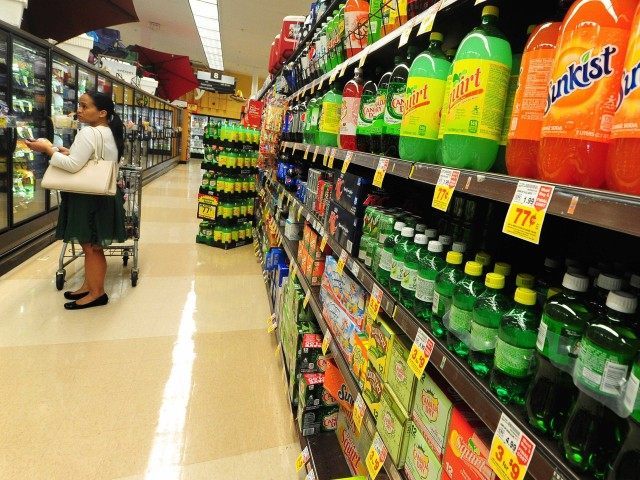West Virginia Republican lawmakers hope to join liberal cities such as San Francisco, Philadelphia, and Berkeley by proposing a soda tax.
Sen. Robert Karnes of the West Virginia Senate introduced SB 335 that would institute a one cent tax on soda to fund a four-year school of medicine, dentistry, and nursing of West Virginia University. Sen. Karnes said, “The soda tax increase would bring in an estimated $60 million, which would be allocated to the state’s General Revenue Fund.”
Philadelphia approved a tax of 1.5 cents per ounce on soda and sugary drinks, similar to the proposal in West Virginia. Supermarkets and distributors already reported a 30 to 50 percent drop in beverage sales.
Pepsi announced that it will lay off 80 to 100 workers who serve Philadelphia because of the city’s soda tax. PepsiCo, Inc. spokesman Dave DeCecco lamented, “Unfortunately, after careful consideration of the economic realities created by the recently enacted beverage tax, we have been forced to give notice that we intend to eliminate 80 to 100 positions, including frontline and supervisory roles”:
From a Facebook post, the Philadelphia sugary drink tax implemented today damn, between that & Pennsylvania gas tax no wonder folk revolted pic.twitter.com/ZUtmufCyQn
— SalenaZito (@SalenaZito) January 2, 2017
Ralph Winter, secretary-treasurer of Teamster Local 175 in Charleston, West Virginia, believes that there could be layoffs in the state if they instituted the soda tax. Winter said, “You will get some revenue, but you’ll lose jobs, and then we’ll have circled around to right back where we started.”
The Teamster spokesman added, “If one of your biggest problems is health, then why go just after soda? Why are they not taxing candy, too, if this is the argument?”
West Virginia Gov. Jim Justice’s new budget proposed lower sales, gas, and business taxes while raising tobacco levies by 50 cents per pack and soda taxes to one cent per ounce. West Virginia is currently experiencing a $500 million shortfall in its budget.
Jared Walczak, a policy analyst for the Tax Foundation, said that higher soda and alcohol taxes “are regressive, somewhat arbitrary, a declining revenue source, and particularly conducive to cross-border shopping.”
John Buhl, another scholar at the Tax Foundation, argued that a soda tax would hurt the poor most and serves as a declining source of revenue. Buhl concluded, “These taxes likely won’t fund what’s being promised, won’t resolve the obesity problem, and will hurt workers and consumers. Based on the mounting evidence, fans of the soda tax might want to take a step back and consider what’s best in the long-term, not just the short-term political gains.”

COMMENTS
Please let us know if you're having issues with commenting.